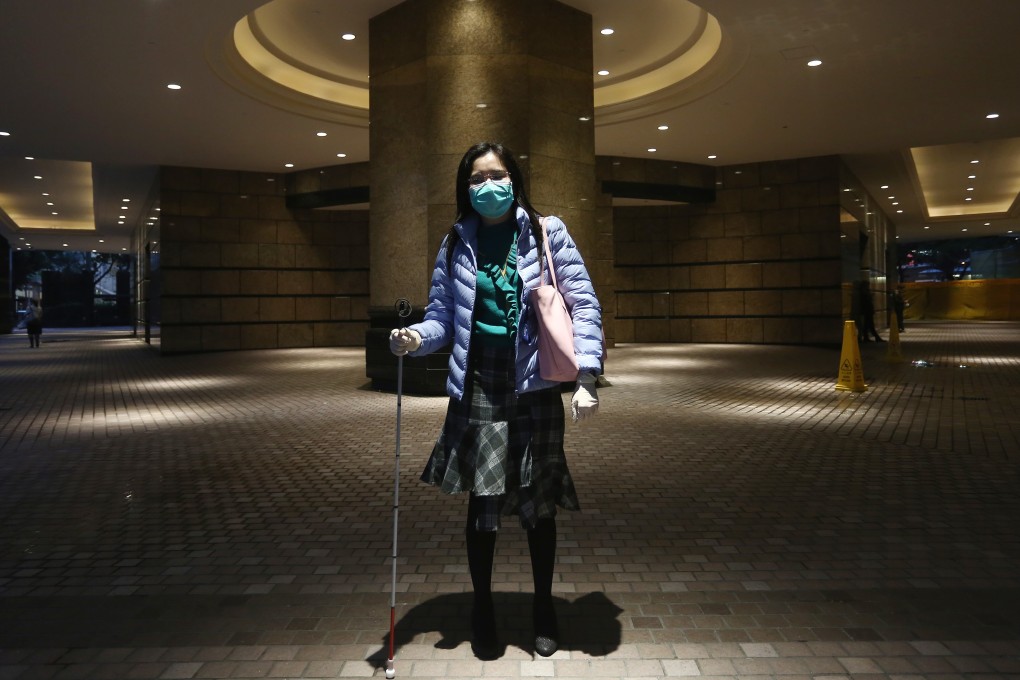Coronavirus outbreak makes life even tougher for Hong Kong’s disabled
- A reliance on touch to get around leaves blind people vulnerable to infection
- They and other disabled people are finding it hard to compete for supplies in contagion-hit Hong Kong, and to get basic services and information

One hand on a walking cane and the other outstretched to feel her way, Jess Shek Kin-chong worries about catching the deadly coronavirus during her daily commute.
Shek, who was born blind, said she had no idea what her hands or the tip of her cane could touch in public. Apart from a surgical mask, she wears a pair of gloves to protect herself, but has to take them off to run her fingers along the tactile dots on lift buttons, to find her floor.
To keep her hands clean, Shek, who is in her 30s, uses hand sanitiser frequently. She also disinfects her cane after every use. But a citywide shortage of hygiene products makes her feel vulnerable.
She said she could not compete for protective items against crowds of panicked buyers, while online ordering is not easy for the visually impaired.
“I’m concerned as the situation worsens,” she said. “We rely on our sense of touch in our daily lives, which puts us at high risk of being exposed to viruses, but we can’t get hold of hygiene necessities.”
By Sunday night, the deadly coronavirus, which causes the disease Covid-19, had killed more than 1,700 people and infected more than 70,000 worldwide, mostly in mainland China. Locally, the virus had infected 57 people, one of whom died.